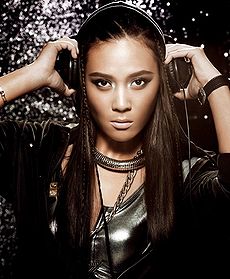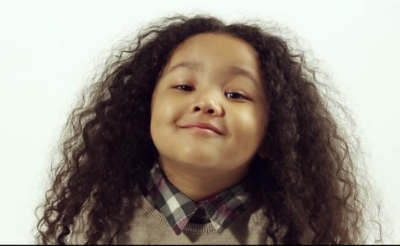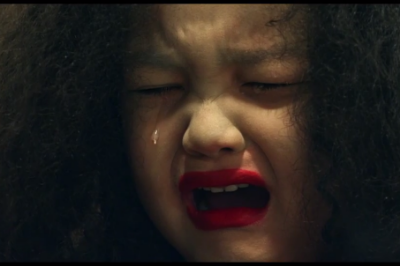In-Depth Digging Into Lee Michelle's "Without You"
Lee Michelle’s “Without You” Video: Challenging Colorism and Crafting a Beautiful Message of Self-Love
On my blog I discuss kpop quite a bit, particularly since many kpop idols are some of theworst serial offenders in terms of their antiblackness and cultural appropriation. It was therefore a pleasant surprise for me to watch this video by Lee Michelle (a biracial former contestant on the first season of “K-pop Star”), which breaks this mold.
Before proceeding I would like to briefly note that there have been biracial stars in Korea before. But when we talk about “biracial” or “mixed” children in the context of Korea, it’s so important that we think critically about what we mean when we say “mixed”. When kpop sites talk about “biracial” kpop stars, they default to white and typically mean mixed “white-Korean”. They will go so far as conflating the experiences of mixed white-Korean children with those of black-Korean children in the same article and somehow think that their articles still have credibility. These experiences are simply not the same and conflating them together is not only intellectually lazy but insulting. Yes, Korea has a relative obsession with racial purity which does affect both groups, but global white supremacy, colorism and virulent antiblackness makes the situation for mixed black-Korean children significantly worse than that of mixed white-Korean children.
[image description: a portrait of Tasha Yoon Mi-Rae, a biracial half-black Korean R&B artist who has spoken eloquently about colorism in her music Photo via Generasia]
The lived experiences of people like Daniel Henney (mixed white-Korean) who get widely praised for their features and appearance, and that of Lee Michelle who is half black, dark skinned, has coarse hair and does not have passing-privilege as full Korean are notthe same. Colorism already affects darker-skinned Koreans in incredibly damaging ways, and intersecting that experience with racism makes this doubly hard for mixed-black Koreans.
And so Lee Michelle’s presence in the industry matters. Tasha Yoon-Mi Rae has discussed colorism and the discrimination she has faced for her mixed-black heritage eloquently in her song “Black Happiness,” and in a similar way “Without You” has also struck a chord with me.
[image description: a promotional picture of Lee Michelle Photo via 24-7kpop]
“Without you” lyrically is a breakup song directed at one man, but the chorus in particular is significant in which she asserts:
I’m beautiful without you
I’m meaningful without you
I’m still beautiful even if I wasn’t loved by youAnd then she continues:
I’m so angry
Everyone treated me like you did, baby
Now I’ll erase you and wipe my tears
So I can receive a love that’s better than yours and different from yoursWith these words, Lee Michelle asserts her beauty for herself and for the listener in turn. For a dark skinned, mixed black girl growing up in South Korea to assert this in the midst of a society where light skin and racial “purity” are prized and antiblack sentiments are rampant is a radical act indeed. Without a doubt Lee Michelle typically grew up hearing everything but “you are beautiful.” It is almost certain that like other mixed black children in Korea, she was mocked and teased mercilessly for her hair texture, “black” feature and dark skin. These things in the eyes of many simply precluded her from beauty, she was “ugly”- simple as that.
So in this song, ostensibly directed at one boy, we find a declaration of self-love and emancipation from damaging colorist, racist, societal standards of beauty. If you’re not going to love yourself in a society which doesn’t cherish people who look like you, then who will? Lee Michelle finds this answer within herself, which is a theme echoed by the music video.
[image description: an image still from the “Without You” video of a young biracial [black-Korean] girl]
In the video, a young biracial (mixed black-Korean) girl is shown walking down the street before she lingers on the image of a black graffiti figure. As she peers at the figure, she suddenly begins to run, being chased by an unseen monster. I saw this as representative of the unseen, but asive societal pressures pushing her from accepting herself, her blackness and her features, even at that young age.
Being chased into a shelter, she then proceeds to draw many figures with dark features on the wall. Staring into a mirror, she then proceeds to powder her face white and put on lipstick. A white-washed version of Lee Michelle then appears on camera with a light powdered face, red lips and straightened hair to evoke an image of the person this little girl “aspires” to be—an image crafted in the crucible of societal beauty standards that denies her as beautiful the way she is. The little girl begins to weep. There is ultimately no joy or happiness in self-rejection and hatred.
[image description: A screencap from the “Without You” video of the young biracial girl crying with white powder on her cheeks and bright red lipstick on her lips]
This all comes full circle at the end of the music video when this little girl begins to throw paint balls at a colorless portrait of Lee Michelle. This scene evoked for me the acceptance of oneself regardless of your skin color and in the face of interlocking systems of domination which deny you your agency and being. The ecstasy on the little girl’s face as she throws each paint bomb and asserts this again and again is so indicative of this. To complete her journey to self-love and actualization, she then walks through a magical door of light, which appears on the wall she just painted, and approaches an adult Lee Michelle. They look at one another and smile and Lee Michelle sings “Without you, I’m alright” one last time.
A message of self-love indelibly crafted which will resonate with people who suffer from colorist and racist standards of beauty across the globe. A moving video, and I wish Lee Michelle the best with this promising start to her professional career, and I am incredibly glad that YG Entertainment no longer has their hands on her, given their history of antiblackness. Congratulations, Michelle!
I would like to thank all of my followers who took the time to send me links to this video and made me aware of it. You’re the best!
Related articles:
+ Kpop’s Top 10 Racist Moments of 2013
+ How problematic is the kpop world? (Master post)
I agree with everything on this blog post on Tumblr.
If you haven't watched the MV already, then WATCH IT. It's BEAUTIFUL~ :D
Cr: http://black-in-asia.com/




Comments